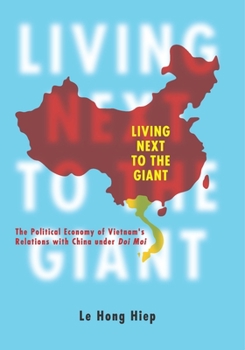Living Next to the Giant: The Political Economy of Vietnam's Relations with China Under Doi Moi
(Part of the Indochina Unit Series)
This book examines how the interaction between political and economic factors under Doi Moi has shaped Vietnam's China policy and bilateral relations since the late 1980s.
After providing a historical background, the book examines the conflicting effects that Doi Moi has generated on bilateral relations. It demonstrates that Vietnam's economic considerations following the adoption of Doi Moi contributed decidedly to the Sino-Vietnamese normalization in 1991 as well as the continuous improvements in bilateral ties ever since. At the same time, Vietnam's economic activities in the South China Sea and China's responses have intensified bilateral rivalry and put their ties under considerable strains. The book goes on to argue that Doi Moi has indeed brought Vietnam newfound opportunities to develop a multi-level omni-directional hedging strategy against China. Finally, the book concludes by looking at the prospects of democratization in both countries and assessing the future trajectory of their relations under such circumstances. As the most comprehensive and up-to-date survey of Vietnam's relations with China over the past thirty years, the book is a useful reference source for academics, policymakers, students, and anyone interested in contemporary Vietnam foreign policy in general and Vietnam-China relations in particular.Format:Paperback
Language:English
ISBN:9814459631
ISBN13:9789814459631
Release Date:December 2016
Publisher:Iseas - Yusof Ishak Institute
Length:259 Pages
Weight:0.90 lbs.
Dimensions:0.6" x 6.0" x 9.0"
Related Subjects
Business Business & Investing Economics Political Science Politics & Social SciencesCustomer Reviews
0 rating





